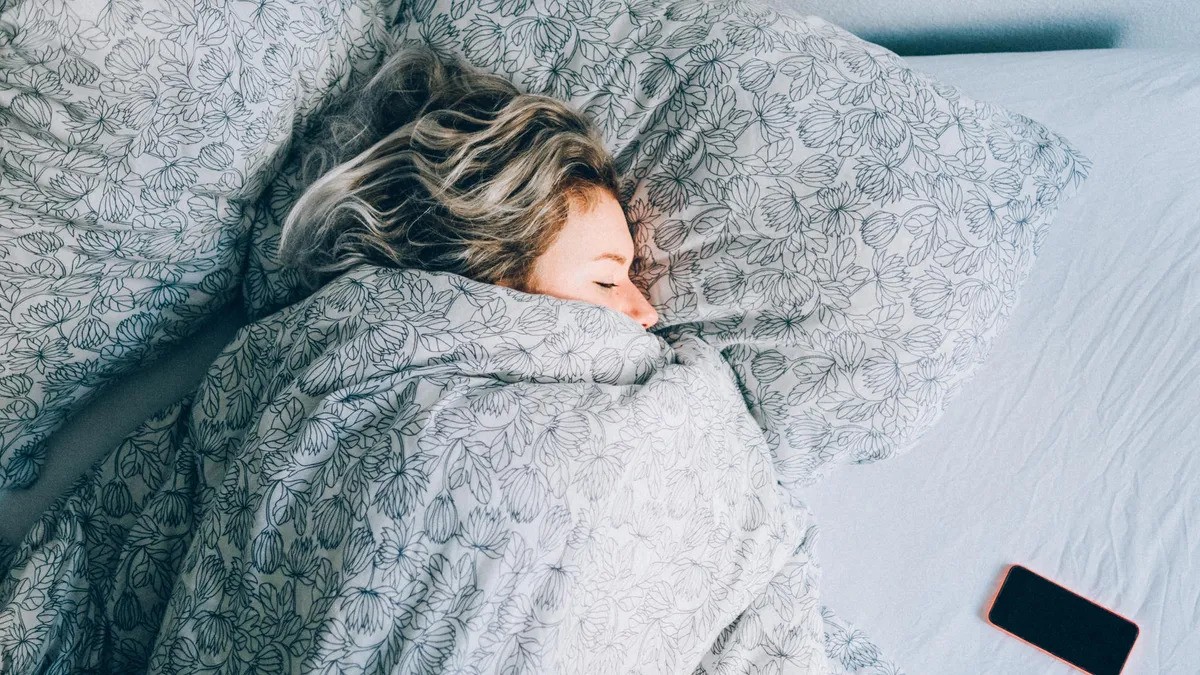Evening Routines For Better Sleep - Creating Sleep-Friendly Habits
Achieving quality sleep has become more elusive than ever. However, by implementing evening routines for better sleep, we can reclaim control over our rest and recharge our bodies and minds for the challenges of the day ahead.
Author:Katharine TateReviewer:Karan EmeryFeb 26, 20242.9K Shares39.5K Views

Achieving quality sleep has become more elusive than ever. However, by implementing evening routines for better sleep, we can reclaim control over our rest and recharge our bodies and minds for the challenges of the day ahead. Among the plethora of strategies available, one of the most effective approaches is creating a sleep-friendly evening routine.
By intentionally structuring our pre-sleep activities, we can signal to our bodies that it's time to unwind and prepare for a restorative night's sleep. Below are some of the essential components of a sleep-friendly routine and how they can transform your nightly experience.
Set A Consistent Bedtime
Setting a consistent bedtime is crucial for regulating your body's internal clock and improving sleep quality. By going to bed at the same time each night, even on weekends, you help synchronize your circadian rhythm, making it easier to fall asleep and wake up refreshed. Consistency reinforces your body's natural sleep-wake cycle, promoting better overall sleep hygiene and enhancing your ability to function optimally during the day.
Limit Screen Time
To promote healthier sleep, it is vital to limit screen time before going to bed. Blue light, which is released by electronic devices such as smartphones, tablets, and computers, has the potential to interfere with the production of melatonin, which is the hormone that controls sleep habits.
By minimizing the amount of time spent on electronic devices approximately one hour before going to bed, you send a message to your body that it is time to wind down and get ready for sleep. To ensure that you have a pleasant night's sleep, you should instead engage in activities that are calming.
Engage In Relaxing Activities
Engaging in relaxing activities before bedtime can significantly improve sleep quality. Activities such as reading a book, taking a warm bath, practicing gentle yoga, or listening to calming music help to reduce stress and tension accumulated throughout the day, preparing the mind and body for sleep. By incorporating these soothing activities into your evening routine, you create a peaceful environment conducive to relaxation, making it easier to transition into a restful night's sleep.
Create A Comfortable Sleep Environment
Creating a comfortable sleep environment is essential for promoting restful and uninterrupted sleep. Ensure your bedroom is cool, dark, and quiet, as these conditions are optimal for quality rest. Invest in a comfortable mattress and pillows that provide adequate support for your body, reducing discomfort and minimizing disturbances during the night.
Consider using blackout curtains to block out any external light and a white noise machine or earplugs to mask any disruptive sounds. By optimizing your sleep environment, you can create the ideal conditions for a rejuvenating night's sleep, leaving you feeling refreshed and energized in the morning.
Establish A Relaxing Bedtime Routine
Establishing a relaxing bedtime routine is key to preparing your mind and body for a restful night's sleep. Incorporate calming activities such as dimming the lights, practicing deep breathing exercises, or indulging in a soothing cup of caffeine-free tea to signal to your body that it's time to wind down.
Engage in activities that help you unwind and release the stresses of the day, such as gentle stretching or journaling about your thoughts and feelings. By establishing a consistent bedtime routine, you can create a sense of predictability and relaxation that encourages deep and restorative sleep, setting the stage for a refreshed and energized morning.
Limit Alcohol Consumption
Limiting alcohol consumption before bedtime is crucial for achieving quality sleep. While alcohol may initially make you feel sleepy, it can disrupt your sleep cycle, leading to fragmented or shallow sleep later in the night.
Alcohol interferes with the body's ability to enter into deep, restorative sleep stages, resulting in poor sleep quality and an increased likelihood of waking up feeling groggy or unrested. By minimizing alcohol intake in the hours leading up to bedtime, you can support your body's natural sleep processes and ensure a more restful and rejuvenating night's sleep.
Set Your Alarm
Setting your alarm is a practical step in ensuring you wake up on time, but it's also a crucial part of maintaining a consistent sleep schedule. By setting your alarm for the same time every morning, including weekends, you help regulate your body's internal clock, making it easier to fall asleep and wake up naturally.
Setting your alarm allows you to plan your sleep duration, ensuring you get the recommended amount of rest each night for optimal health and well-being. Whether it's a gentle wake-up tone or a gradual sunrise simulation, your alarm can be customized to suit your preferences and promote a smoother transition from sleep to wakefulness.
Drink A Cup Of Tea
Drinking a cup of tea can be a soothing and relaxing addition to your evening routine, especially when aiming to wind down before bedtime. Opting for caffeine-free herbal teas such as chamomile, peppermint, or lavender can help promote relaxation and ease tension in both the body and mind. The warmth of the tea can also have a calming effect, signaling to your body that it's time to transition into a state of rest.
Sipping on a cup of tea can provide a moment of mindfulness, allowing you to pause and savor the flavors while letting go of any stress or worries from the day. Incorporating this simple ritual into your evening routine can contribute to a more peaceful and restful night's sleep, leaving you feeling refreshed and rejuvenated in the morning.
Take A Warm Bath
Taking a warm bath before bedtime can be a luxurious and effective way to relax both your body and mind, promoting better sleep. The warm water helps to soothe tired muscles and alleviate tension, making it easier to unwind after a long day. Adding some bath salts or essential oils with calming scents like lavender or chamomile can enhance the relaxation experience, further easing stress and anxiety.
As your body temperature naturally drops after exiting the bath, it signals to your brain that it's time to prepare for sleep, helping you drift off more easily. Incorporating a warm bath into your evening routine can serve as a peaceful transition from the hustle and bustle of the day to a restful and rejuvenating night's sleep.
Make A To-Do List For Tomorrow
Making a to-do list for tomorrow can be a helpful practice to declutter your mind and prepare for a restful night's sleep. Jotting down tasks and responsibilities for the next day allows you to prioritize and organize your thoughts, reducing the likelihood of racing thoughts or worries keeping you awake at night.
By creating a clear plan of action, you can feel more in control and confident about tackling the day ahead, leading to a greater sense of calm and relaxation. Knowing that you have a plan in place can alleviate any apprehension about forgetting important tasks, allowing you to fully unwind and recharge during the night.
Evening Routines For Better Sleep - FAQ
What Is The Best Sleeping Routine?
Set aside no more than eight hours for sleep. The recommended amount of sleep for a healthy adult is at least seven hours. Most people don't need more than eight hours in bed to be well rested. Go to bed and get up at the same time every day, including weekends.
Should I Drink Water Before Bed?
Research has shown that dehydration causes people to feel cold or hot while sleeping. Drinking water before bed benefits you by not only ensuring that you remain well hydrated while you sleep but also maintaining optimal body temperature. This helps ensure that your sleep remains undisturbed and comfortable.
How Long Before Bed Should You Stop Eating?
Experts recommend waiting at least three hours after you've eaten to go to bed. This allows your body time to digest your food so you're not up at night with an upset stomach, indigestion, or acid reflux. And it helps you stay asleep.
Final Words
In our pursuit of better health, the importance of evening routines for better sleep cannot be overemphasized. Prioritizing mindfulness and relaxation in the hours before bed opens the door to deeper, more restful sleep. By making a regular commitment to these habits, we give ourselves the ability to fully enjoy the restorative potential of sleep and wake up every morning feeling revitalized, renewed, and prepared to take on the day.
Jump to

Katharine Tate
Author

Karan Emery
Reviewer
Latest Articles
Popular Articles
